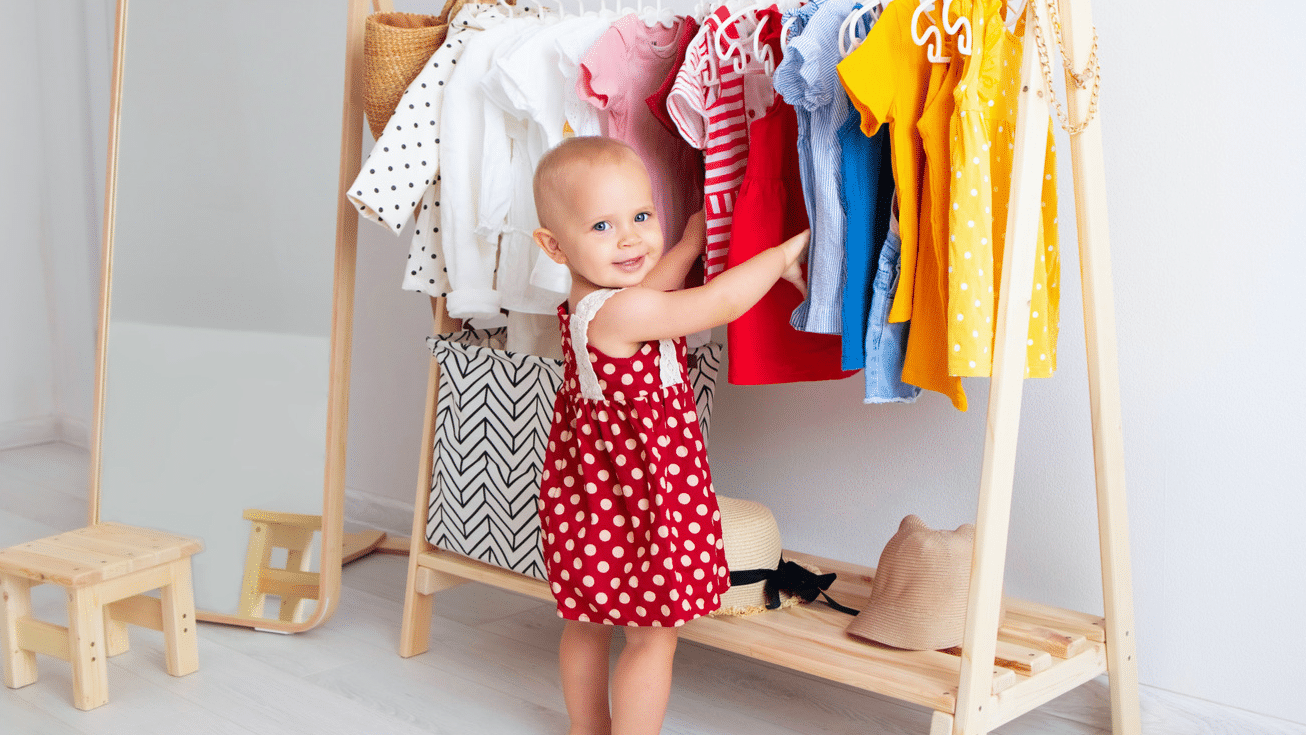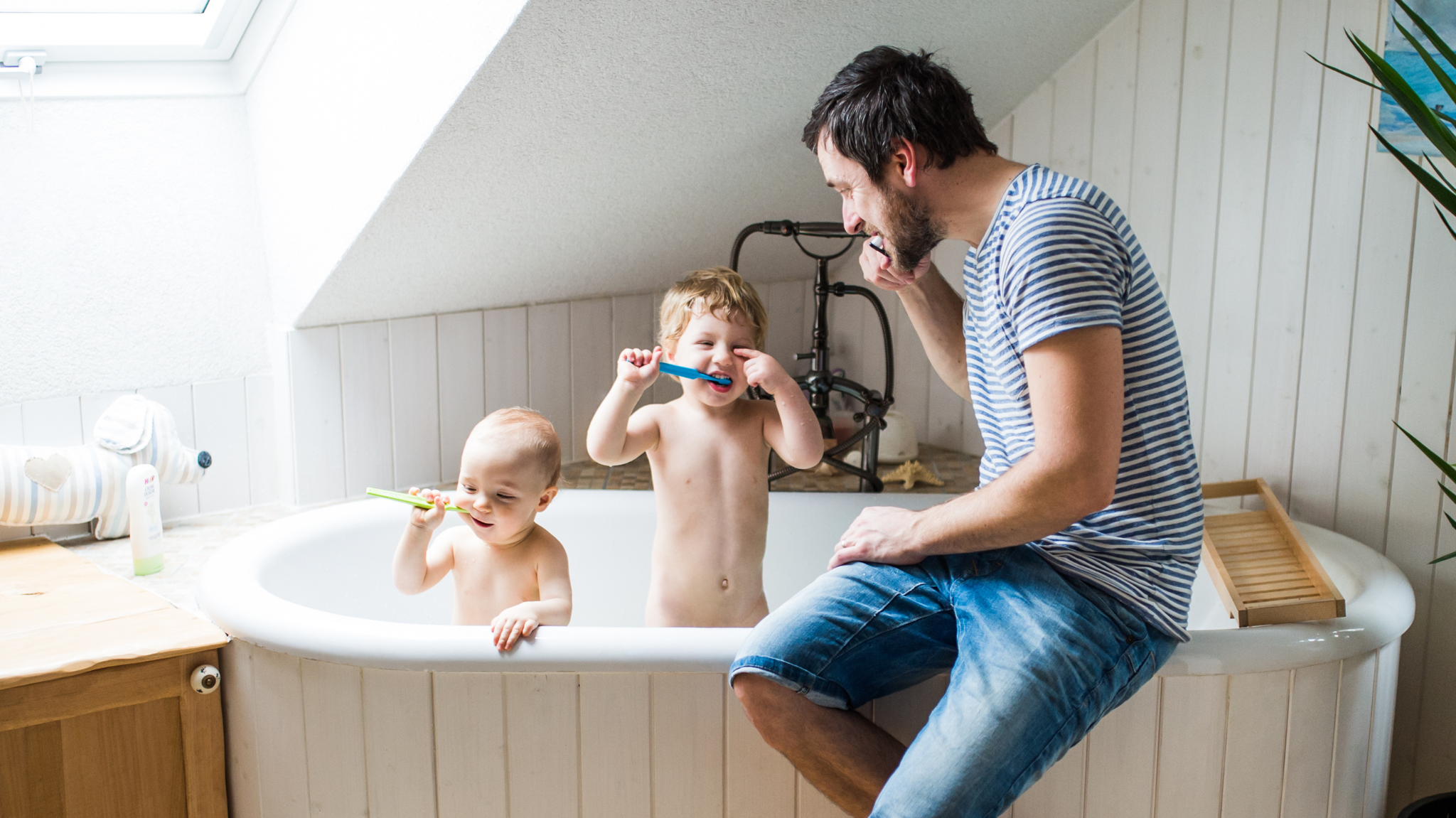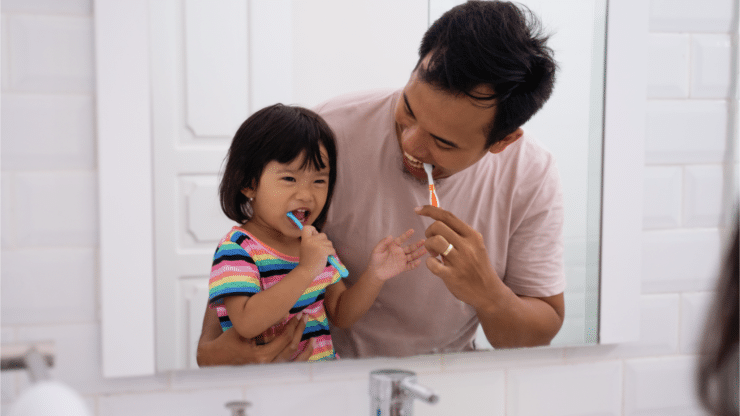Has your toddler started shouting, “I can do it!” when you try to do something for them?
The toddler years are when children go from being completely reliant on their parents to become more independent. They grow so much during this time that it can be difficult for parents to keep up with how much their child changes.
Even though this period of your child’s life comes with many challenges and a whole lot of tantrums, the good thing is that your kiddo will be able to do more things for themselves, which means less work for you!
Toddlers are very capable of doing many things by themselves including self-care routines. It’s very important for parents to encourage toddler independence so that their child can be more confident and develop important developmental skills like fine motor and problem-solving skills, as well as hand-eye coordination.
ALSO: Is Melatonin a Safe Sleep Aid for Kids?
Let’s explore some fun and easy ways to help your toddler become more independent and develop important self-care skills!
1) Hand Washing
Your toddler can wash their hands by themselves and can learn to turn the faucet on and off if they can reach it. They will blast that faucet and get water everywhere, but if that happens, you can hand them a towel and ask them to clean up the water that spilled everywhere. Once they realize that spraying water comes with consequences, they will be less likely to do it.
To make it easier for your child to access the sink, get a stepping stool to make sure the faucet and soap are within reach. Teach them how to get up and down by themselves and show them how to hold onto the sink for support so that they don’t fall.
Show your child how to get the soap. If you’re using a soap pump, make sure it’s easy for your toddler to get the soap out by themselves. If they can’t, they can use a soap bar instead. You want to make everything easy and accessible for them so they can help themselves.
Show your child how to wash their hands by modeling how to do it and guiding them, but don’t do it for them. To make it more fun, sing a hand-washing song like “This Is the Way We Wash Our Hands” or you can even make up your own song.
To make hand washing really fun, your toddler can make some play dough soap!
2) Eating
Once your baby can sit up and grab things, they can start to eat by themselves. By the time your kid becomes a toddler, they should be eating by themselves for all snacks and meals.
Some parents get so worried about their child not eating enough and think that they need to chase their kiddo with a spoon of oatmeal around the house, so that they don’t starve to death. Don’t do it! If your child is hungry, they will eat.
It’s best to avoid high chairs that are difficult for your child to get in and out of by themselves. They need to be independent and help themselves as much as possible.
You can get them a booster chair with a stepping stool so they can climb up and down the dining chair by themselves or you can buy a child-sized table and chair for their meals.
It’s ok for your child to make a mess when they eat, they will be less messy with more practice. It’s ok if they play with their food, but if they start throwing food or causing too much of a disruption during family meal time, then that means they aren’t hungry and can clean up and do something else while everyone else finishes up eating.

3) Getting Dressed
Your toddler can learn how to get dressed. They can start by learning how to take off their shoes and socks. Once they know how to do that, they can learn how to put them on. Try to buy shoes that are easy for them to put on.
Once your toddler has mastered socks and shoes, they can move on to learning how to put on and take off their pants, skirts, or shorts. Shirts and dresses should be last since those are more complicated, but your toddler will master those too with practice!
To show your toddler how to get dressed or take things off, do it for them first while explaining how to do it using clear and simple language. Then have them do it while you guide them. In the beginning, you will need to step in and help them when they get stuck, but they will get the hang of it. Keep encouraging them.

4) Brushing Teeth
Show your toddler how to brush their teeth by brushing your teeth with them. Remind them to brush the front, back, and gums. After they’re done, you can pretend to be a dentist and inspect their teeth to make sure they did a thorough job. Even if they miss a few spots, keep letting them do it themselves first, remind them to brush everything, and then touch up if needed.
To make brushing teeth more fun, ask your toddler to choose a toothbrush and toothpaste they like at the store. You can also make a game of it to see who can make the most bubbles or who can brush their teeth the longest.
5) Cleaning Up
Your toddler can clean up their toys and any messes that they make once they’re done with an activity. Even if they don’t do a perfect job, let them do it, and then arrange it how you want it after they have moved on to the next activity. My toddler students loved to sing the “Clean Up Song” as they cleaned. You can also race them to see who can clean up the fastest to make it more fun for them.

6) Making Decisions
Your toddler is ready to make more decisions to help them build confidence and develop decision-making skills that they will need as they get older. They can choose what to wear, choose their own snacks, and choose their own playtime activities.
More minor decisions like what cup to drink out of or what book to read will help boost your child’s confidence and teach them to be more independent.
A Note About Potty Training
Potty training is more complicated because toddlers need to be physically and mentally ready to potty train. This can’t be forced or rushed. Kids are ready for potty training at different ages, so don’t worry about jumping into that just yet if your toddler is not ready.
When teaching your toddler how to do different things for themselves, always give them extra time to complete tasks. Do not get frustrated that they’re taking too long; don’t “do it for them” unless you’re on a tight schedule or have an emergency.
Be patient and allow your toddler to make mistakes. That’s how they learn.
ALSO: Here Are 4 Vital Self-Care Tips for New Parents
If your toddler is taking longer to get ready in the morning and you need to get to work, wake them up a little earlier so that they have more time to get ready. Once they get the hang of it, they will be a lot faster, but they won’t be able to get to that point if you keep doing things for them. Once your little ones have mastered these early life skills, they’ll feel pride and confidence.
Get ready to hear “I can do it!” all the time!










Add comment